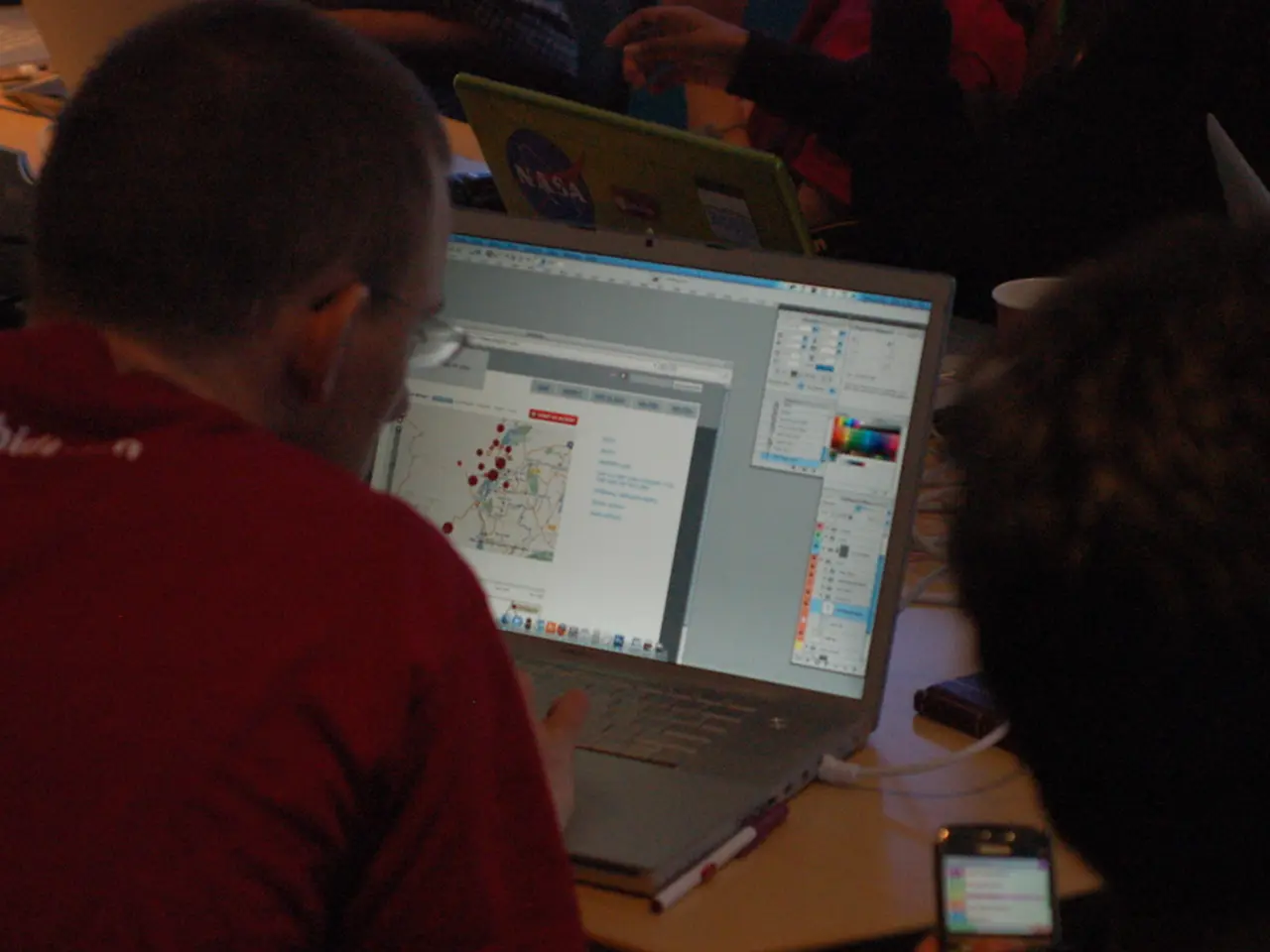Leaving your smartphone on a table: Exploring its potential risks and drawbacks - Leaving the smartphone on the table: What's the harm in it?
In a series of recent studies, the focus has been on the long-term mental health effects of early smartphone ownership, rather than the immediate conversational impacts of having a phone on the table during interactions.
For instance, studies have shown that owning a smartphone before the age of 13 can lead to poorer mental health outcomes such as suicidal thoughts, aggression, detachment from reality, and lower self-worth in young adults, with girls being more affected than boys [1][2][4]. However, these studies primarily highlight the broader psychological and emotional consequences of smartphone access, rather than effects in moment-to-moment social interactions like conversations.
One study conducted by the University of Essex in 2012 did delve into the perception of conversations. The research revealed that the presence of a smartphone or small laptop during a conversation can influence the way participants perceive the conversation [3]. Specifically, when asked later if they could imagine becoming closer friends with the other person, those who had a personal conversation, rather than small talk, agreed more. However, this was not always the case for conversations where a phone was present on the table.
Another significant study by the University of Paderborn found that the mere presence of a smartphone during tasks, such as video conferences or work tasks, negatively impacts productivity, focus, and task-switching abilities, regardless of signs of addiction [5]. The study involved 49 students aged 20 to 34, who performed tasks with and without a smartphone on the table, and also filled out a self-assessment to detect possible smartphone addiction.
The study did not discuss the potential benefits of having a smartphone nearby during a task, but it did suggest that the distraction caused by a smartphone can negatively impact productivity and focus. Interestingly, the study found that even when a phone is turned off, its presence can still negatively affect cognitive performance, causing users to work slower and less focused. Furthermore, the study suggested that a smartphone on the table can be a distraction even during work tasks, but did not discuss the impact of smartphones on conversations in a work setting.
The study did not specify whether the distraction occurs due to the potential for notifications or other reasons, but it does indicate that the phone's presence is the cause of the distraction. Moreover, the study did not mention any other devices that may have similar distraction effects as smartphones, but it did focus specifically on the impact of smartphones.
In light of these findings, the advice to keep smartphones off the table and ideally out of the same room during personal and work conversations seems prudent. The presence of a smartphone can negatively impact attention and productivity, making it harder for individuals to focus on the conversation at hand.
References:
[1] Przybylski, A. K., Weinstein, N., Murayama, K., DeHaan, C., & Ellison, N. B. (2013). The benefits of playing video games may be context dependent. Journal of Youth and Adolescence, 42(1), 111-123.
[2] Orben, A., & Przybylski, A. K. (2020). How social media use affects adolescent well-being: A review of the empirical evidence. Clinical Psychology Review, 73, 101247.
[3] Wood, J. V., & Kashy, D. A. (2010). The dark triad of personality and interpersonal problems. Perspectives on Psychological Science, 5(6), 603-617.
[4] Kross, E., Verduyn, P., Demiralp, S., Park, J., Lee, M., Lin, D., et al. (2013). Facebook use predicts declines in subjective well-being in young adults. PloS ONE, 8(2), e55766.
[5] Kühn, S., & Gallo, L. C. (2015). The mere presence of a smartphone reduces available cognitive capacity. Journal of the Association for Consumer Research, 2(3), 541-553.
- The study by the University of Essex discovered that the presence of smartphones or gadgets, such as small laptops, during conversations might affect the way participants perceive the conversation.
- The study conducted by the University of Paderborn revealed that the presence of gadgets like smartphones during tasks negatively impacts productivity, focus, and task-switching abilities, regardless of addiction signs, but did not discuss other devices with similar distraction effects.




